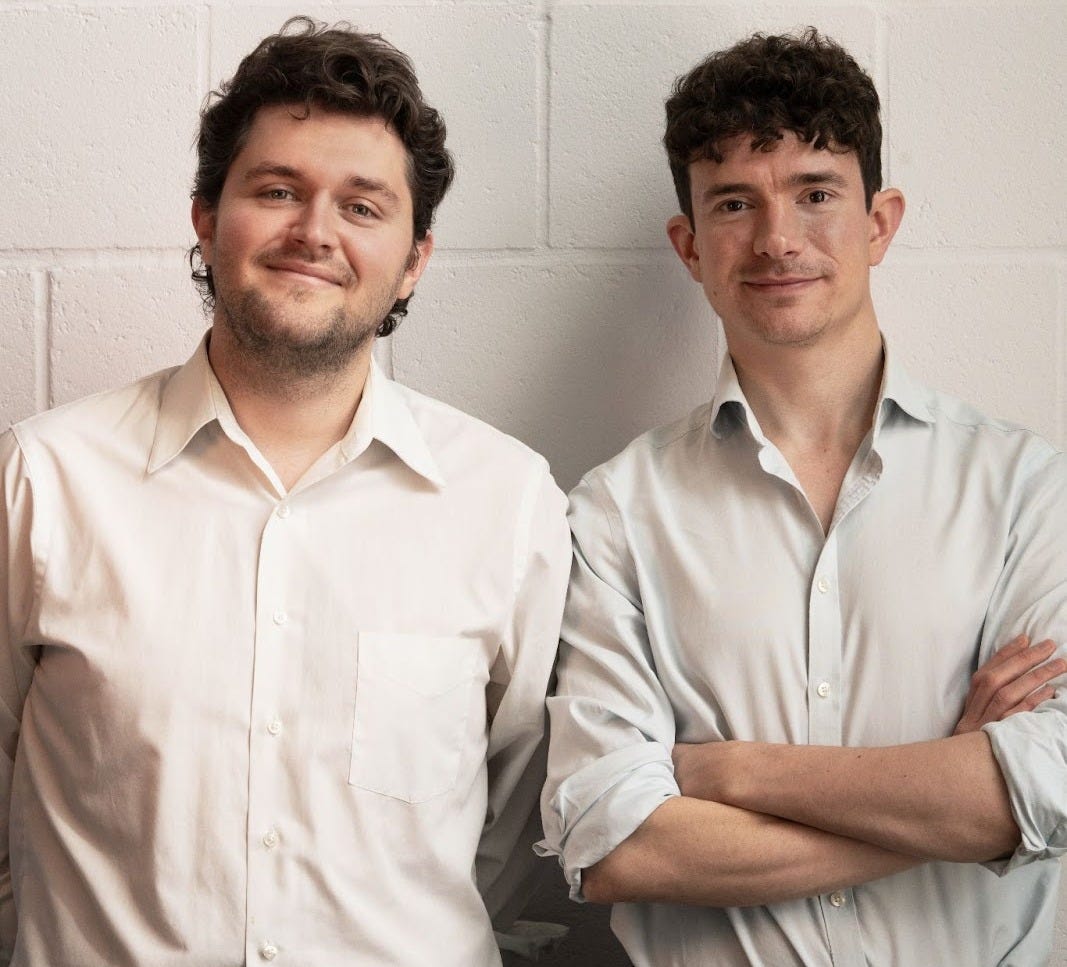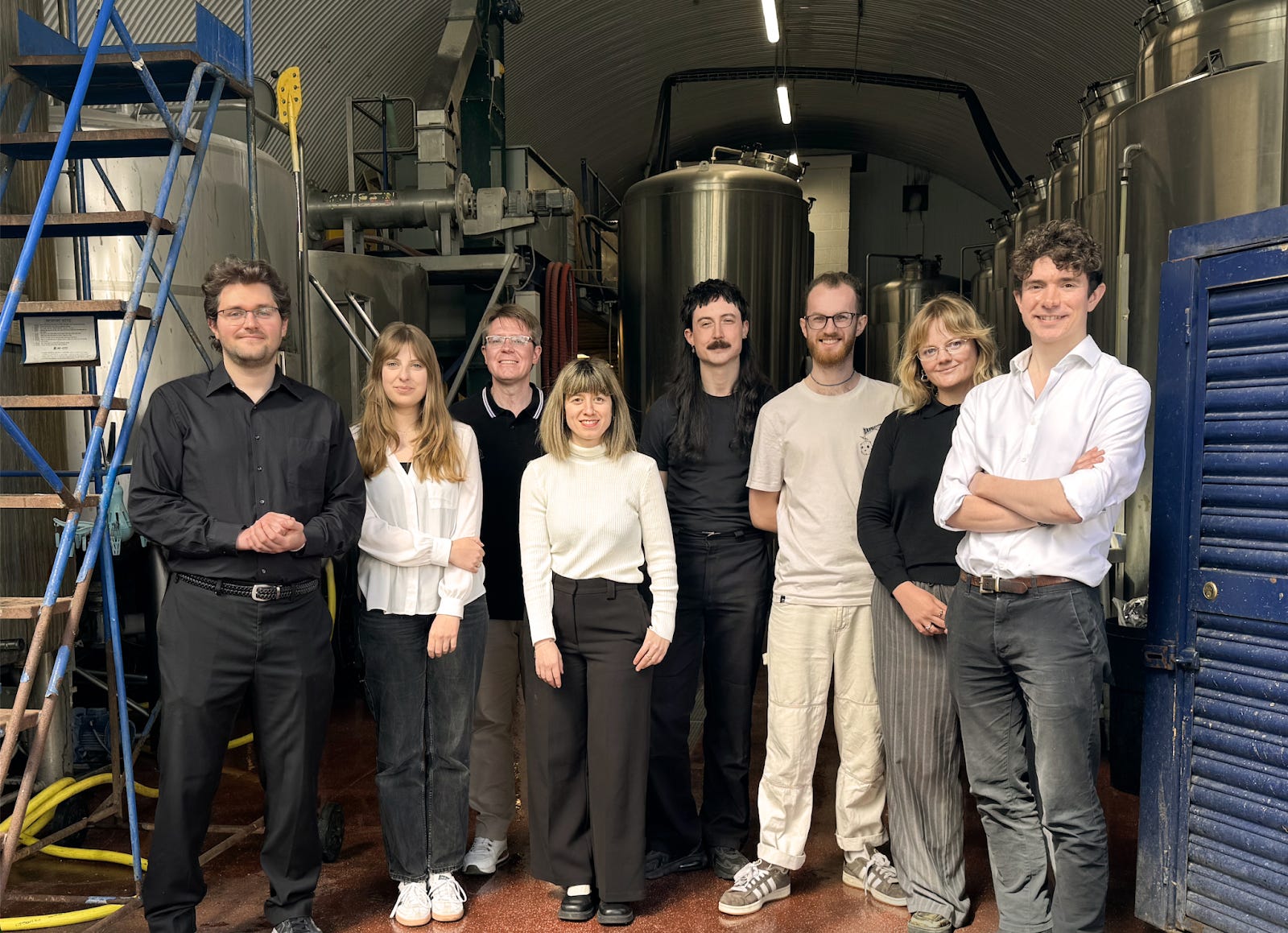UK-based Arda Biomaterials has raised a $5.25 million seed round for its plastic- and leather-alternative materials derived from beer and whisky makers’ spent barley.
Germany-based Oyster Bay Venture Capital led the seed round with participation from existing investor Clean Growth Fund, alongside new investors Kadmos Capital and Green Angel Ventures.
The round will enable London-based Arda to build out a new facility five times the square footage of its current one, says cofounder and CEO Brett Cotten.
‘Enormous scales and really low unit economics’
Arda collects this spent grain from breweries and distilleries and uses patented supramolecular chemistry to extract the proteins from the grain and manipulate them to mimic the fibrous structure of animal proteins in leather.
The company says its resulting material could replace both leather and plastic alternatives to leather commonly found today.
Arda is based in London’s Bermondsey Beer Mile that’s home to numerous craft breweries and distilleries. The startup’s first material innovation is New Grain, a leather-like textile with applications in the fashion and automotive industries. Last year saw Arda partner with BEEN London to produce a “snakeskin” handbag with grain sourced via the Beer Mile.
“We’re working towards bringing the upstream—the brewers and whisky distillers—to the downstream fashion, automotive, footwear industries,” he tells AgFunderNews. “If you can combine the two, that’s where you can get enormous scales and really low unit economics.”
By his calculation, working with one major brewery (think AB InBev size) could produce anywhere from 5 million to 10 million meters of material in just one facility.
“Normally, when you look at co-locating and taking a feedstock and turning it into stuff, you need to put these [operations] across many, many sites. But for us, it just takes a few. To get to 1% of the leather market, which is just 20 million meters, you just need a few of these put together.”
Arda’s current priorities, he adds, are around finding “a small handful of partners”—specifically in fashion—to work with by the end of this year or early next.
The forthcoming new facility will be able to produce “plenty of excess material” Arda can use when working with prospective partners.

Joining the 100+ Accelerator: ‘It’s a big opportunity for us’
Meanwhile, Arda has joined the sixth cohort of the 100+ Accelerator program co-sponsored by AB InBev, Coca-Cola, Colgate-Palmolive, Danone and, Unilever.
Chosen startups participate in a six-month program where they receive mentorship, support, and $100,000 to be put towards a pilot project.
“Because we work with breweries, we’re working with AB InBev, so that will hopefully end later this year with their demo day,” says Cotten. We’re really excited because they’re the biggest brewer in the world and it’s a big opportunity for us.”
Currently, Arda is getting grain from Anheuser-Busch facilities around London to use in the new materials. Since different recipes call for different versions of grains, Cotten and the team are analyzing which would make the most ideal feedstock for its biomaterials.
Certain recipes can impact color, for example. “Think of stouts like Guinness,” explains Cotten. “They roast the malted barley beforehand, and we’re able to pull through those natural dark tannins to get a really nice natural black material. If you use things like loggers and IPAs, you can get a nice deep brown.”
This process allows Arda to skip the tanning process, which Cotten says streamlines the company’s supply chain and reduces chemicals and coating found with leather tanning.
“We can tweak our own formulations to make higher elasticity, higher tensile strength, different thicknesses, different patterns. It’s all really customizable, because we build something from the ground up, rather than having to take some like biomass, like mycelium or animal skins, and break those down.”
While Arda’s current focus is the fashion segment, the automotive industry would be “the highest caliber of material to go after,” he adds.

Towards commercialization
Echoing a point many startups these days voice, Cotten says the fundraising process this time around was challenging.
“We came out of [accelerator program] Entrepreneur First in 2022 and we ended up raising a pre-seed 2023. In the late-2022 to early-2023 period, I thought it was the bottom of the market. Then we went out [to fundraise] this time and I realized last time was actually easier.
“It seems there’s not much urgency for VCs to write term sheets,” he adds. “But once you do get some, everyone tries to pile onto a deal that’s on the way out the door. It took a while for the train to leave the station, but once it was on the way out, we got a lot more interest.”
The company plans to have items made with New Grain material available to consumers in a limited capacity later this year.
Further on, ahead of a Series A, Cotten and team will consider the best possible co-location sites for building out its first full-scale facility.





